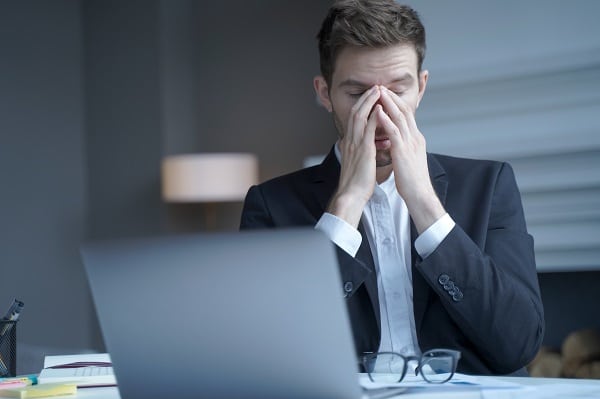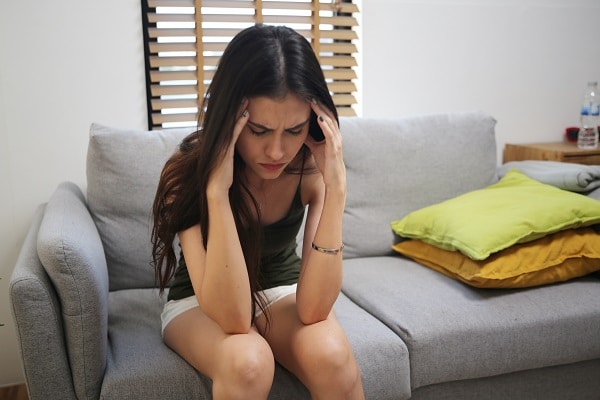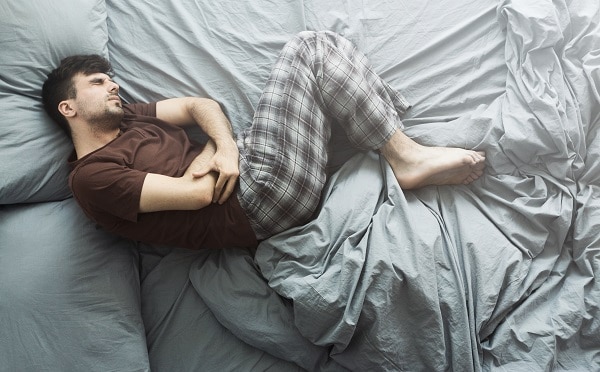Depression can be a debilitating condition that affects both your mental and physical health. It can cause a wide variety of symptoms that can make everyday activities very difficult to manage. This article will give you an overview of how depression can affect your body. It will also provide tips on how to cope with these symptoms.
If you or a loved one are struggling with depression, it is vital to seek help from a doctor or therapist. There is no shame in seeking treatment, and there is hope for recovery!
Contents
Chronic Fatigue

Depression is a serious mental illness that can profoundly impact every aspect of a person’s life. While sadness and anxiety are common symptoms of depression, it can also lead to physical problems, such as chronic fatigue. Chronic fatigue is more than just feeling tired; it is a persistent sense of exhaustion that can significantly interfere with a person’s ability to function on a day-to-day basis. In some cases, the fatigue may be so severe that it leads to difficulty getting out of bed or performing simple tasks.
While chronic fatigue is often associated with physical illnesses, such as autoimmune disorders, it can also be a symptom of depression. When chronic fatigue is a symptom of depression, it is usually the result of hormone levels or neurotransmitter activity changes. Treatment for chronic fatigue typically includes antidepressant medication, psychotherapy, and self-care measures, such as exercise and stress reduction. If you are experiencing chronic fatigue, it is important to talk to your doctor about the possibility that it is due to depression.
Loss Of Appetite

When people think of depression, they often think of sadness or a low mood. However, depression is a complex mental disorder that can cause a wide range of physical symptoms. One of the most common physical symptoms of depression is a loss of appetite. The cause of this can be several factors, including changes in brain chemistry and decreased energy levels.
Depression can also lead to feelings of worthlessness or hopelessness, making it challenging to find the motivation to eat. As a result, people with depression may lose weight or become malnourished. Loss of appetite is just one of many physical symptoms of depression, and it can be a significant barrier to recovery.
If you or someone you know is experiencing a loss of appetite, it is essential to seek professional help. You may also want to try some self-care measures, such as eating smaller meals more often or adding nutrient-rich foods to your diet.
Insomnia

For many people, a good night’s sleep is the key to a fresh start in the morning. But for those suffering from insomnia, sleep is elusive and elusive. As a result, they often feel tired during the day and may have difficulty concentrating. In addition, they may experience anxiety and irritability. Insomnia is more than just a temporary inconvenience; it can be a physical symptom of depression.
Depression can cause changes in sleeping patterns, including difficulty falling asleep and staying asleep. In addition, depressed individuals may wake up early in the morning and be unable to fall back asleep. As a result, insomnia can lead to fatigue, low energy levels, and a general sense of malaise.
If you are struggling to get a good night’s sleep, it is important to talk to your doctor about possible causes, including depression. With treatment, you can get the rest you need to feel your best. Some other methods to try include relaxation techniques, such as meditation or yoga, and avoiding caffeine and alcohol before bed.
Headaches

One of the less well-known physical symptoms of depression is headaches. Headaches are a common complaint, but they can be especially troublesome for people with depression. Depression-related headaches are typically described as dull and throbbing. They may be worse in the morning and improve as the day goes on.
In some cases, they may also cause nausea or sensitivity to light. If you are experiencing headaches that seem to be related to your depression, it is essential to talk to your doctor. Headaches can be a sign of other underlying medical conditions, so it is important to rule out other causes.
Treatment for depression-related headaches typically includes medication and self-care measures. Over-the-counter pain relievers, such as ibuprofen or acetaminophen, can help manage pain. If you are struggling with headaches, it is also important to practice stress management techniques, such as deep breathing or relaxation exercises.
Digestive Issues

Another common physical symptom of depression is digestive issues. Depression can cause a number of changes in the digestive system, including decreased appetite, weight loss or gain, constipation, and diarrhea. Certain antidepressant medications can also cause digestive issues. Stress and anxiety can also contribute to digestive problems.
It is easy to overlook digestive issues as a symptom of depression, but they can significantly contribute to the condition. As with any symptom on this list, if you’re experiencing unexplained digestive problems, talk to your doctor about the possibility that they may be related to depression. If you are looking for immediate relief, some over-the-counter and prescription medications can help, such as antacids, laxatives, and fiber supplements.
Increased Sensitivity To Pain

It’s well-known that depression can cause a person to feel fatigue and lose interest in activities they once enjoyed. However, depression can also have a profound effect on a person’s physical sensations. One of the most common physical symptoms of depression is an increase in sensitivity to pain.
Studies have shown that people who are depressed often have a lower threshold for pain, meaning that they are more likely to experience pain at lower levels of stimulation. This increased pain sensitivity can manifest in different ways, from headaches and muscle pain to gastrointestinal issues. In some cases, the increased sensitivity to pain may be due to changes in the way the brain processes information.
Whatever the cause, it’s clear that increased sensitivity to pain is a very real physical symptom of depression. If you struggle with this physical symptom, some options that may help manage it include medication, therapy, and self-care measures.
Treatment For Depression Can Help
These are just a few of the many ways depression can affect your body. And it can not be stressed enough; if you are struggling with depression, it is important to talk to your doctor about your symptoms. With treatment, you can find relief and start feeling better.
There are a number of different treatment options available for depression. Some people may benefit from medication, while others may prefer to try therapy or self-care measures. The most important thing is to find what works for you and stick with it. With treatment, you can start feeling like yourself again.


